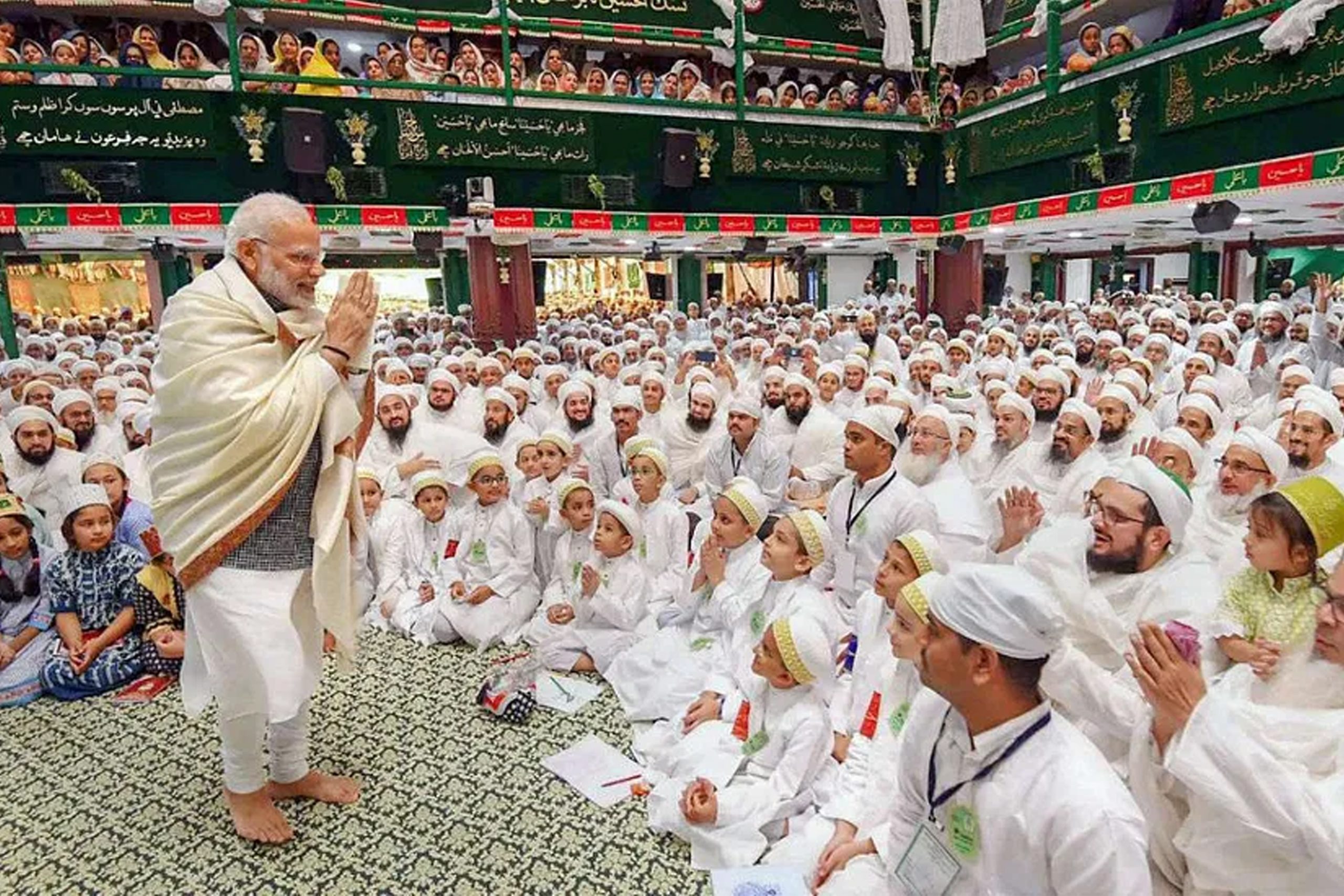The idea of a Uniform Civil Code (UCC) has long been the topic of vigorous discussion in a country as varied as India. Discussions on the subject have resumed with the recent demand for the adoption of a UCC by Prime Minister Narendra Modi. The All-India Muslim Personal Law Board (AIMPLB) called an emergency meeting late at night to discuss this crucial matter after the PM’s speech. This blog intends to examine the Muslim Law Board’s answer in depth and illuminate their viewpoint as they get ready to present their arguments before the Law Commission.
The Need for Uniformity
Prime Minister Modi emphasises a UCC because he thinks that the Constitution ensures that all citizens have equal rights. His analogy of a house with different rules for each component raises pertinent questions about how a country with a dual structure function. The pursuit of a UCC aims to create a uniform legal system that upholds justice and equality for all, irrespective of their religious or cultural heritage.
The Muslim Law Board’s Response
The AIMPLB’s emergency meeting was a proactive response to the Prime Minister’s concerns. The BJP has been accused by several opposition parties of weakening India’s pluralism and diversity, to which the Board attempted to respond with care and consideration. Key Muslim Law Board member Niyaz Farooqui advocated for equity over simple equality. In his remarks, he emphasises how crucial it is to protect women’s rights while a consistent legal framework is put into place.
Preserving Women’s Rights
The protection of women’s rights within the parameters of a UCC is one of the main issues raised by the Muslim Law Board. The Board is aware of the need of protecting the privileges and rights granted to women under current personal legislation. Striking a balance between uniformity and the protection of individual rights is critical, particularly when it comes to issues involving marriage, divorce, and inheritance.
Consultation with Experts and Lawyers
The AIMPLB’s choice to consult with professionals, attorneys, and academics demonstrates its dedication to having productive discussions. They are aware that in order to develop a thorough grasp of the ramifications of a UCC, it is necessary to seek out many viewpoints and areas of expertise. The Board wants to actively include stakeholders from many backgrounds in the creation of a strong legal system that upholds the values of justice, equality, and individual rights.
Promoting National Reforms
The Muslim Law Board’s claim that the desire for uniformity should apply to all facets of society emphasises their understanding that all citizens, regardless of their religious or cultural ties, should benefit from legal reforms. They emphasise the need of resolving the difficulties encountered by various communities in an equitable and inclusive way and see the need for reform as a national responsibility.
Beyond Vote-Bank Politics
Opposition parties responded strongly to Prime Minister Modi’s claim that parties that engage in vote-bank politics incite Muslims. But the Muslim Law Board’s response highlights their determination to transcend partisan politics. The Board wants to create a forum for constructive debate and interaction that is free from the impact of short-term political gains by focusing on the bigger goal of helping to amend the law that benefits the entire country.
The Historical Context of Personal Laws in India
It is crucial to look at the historical background of personal laws in India in order to comprehend the Muslim Law Board’s answer to the need for a UCC. Due to its extensive cultural diversity, India has a long history of having distinct laws for each religious community. These rules have developed over many years and are firmly anchored in cultural and religious norms. Muslim personal law, which is based on Islamic principles, has come under examination and controversy, frequently leading to requests for reform.
.
The Importance of Personal Laws in Minority Communities
Personal laws have helped minority populations maintain their own religious and cultural identities. These rules give communities a sense of security and independence so they can freely practice their religious beliefs and cultural practices. Finding a middle ground between the values of equality and the preservation of their own religious and cultural practices is a preoccupation of the Muslim Law Board. They contend that any attempt at uniformity should not be made at the expense of the privileges and rights recognised by their own laws.
Addressing Gender Inequality within Personal Laws
Those who oppose personal laws, including some Muslims, claim that they support discrimination and gender inequality. They cite the need for reform in areas like polygamy, triple talaq (quick divorce), and unequal inheritance rights. The Muslim Law Board has actively fought to implement progressive reforms within their community and understands the need to solve these issues. They stress the significance of upholding women’s rights while promoting more extensive legal changes that are advantageous to society as a whole.
Engaging in Constructive Dialogue
The AIMPLB’s choice to consult with professionals, attorneys, and academics demonstrates its dedication to having productive discussions. They are aware that in order to develop a thorough grasp of the ramifications of a UCC, it is necessary to seek out many viewpoints and areas of expertise. The Board wants to actively include stakeholders from many backgrounds in the creation of a strong legal system that upholds the values of justice, equality, and individual rights.
The Role of Women in Shaping Reforms
The Muslim Law Board is aware of how important it is for women to influence legal developments. They stress the importance of amplifying the perspectives and experiences of women in conversations about the implementation of a UCC. The Board seeks to create a comprehensive framework that addresses gender imbalances within personal laws while advancing gender justice and equality by making sure that women’s voices are heard and acknowledged.
Considering Socio-Cultural Factors
It is crucial to take into account the socio-cultural elements that influence personal laws throughout various faith communities when pursuing a UCC. In creating a universal legal code, the Muslim Law Board emphasises the value of cultural sensitivity and tolerance. They contend that any reforms should support a more equal and just society while taking into account the distinctive traditions, practises, and customs of varied communities.
The Importance of Public Discourse
Intense public debate has resulted from the call for a UCC, with groups and individuals from all backgrounds offering their thoughts and worries. The Muslim Law Board values free communication and supports productive debates that advance tolerance and respect. A more thorough and equitable UCC that reflects the ambitions and ideals of all citizens, in their opinion, can be developed through open and inclusive discussions.
The Historical Context of Personal Laws in India
To understand the Muslim Law Board’s response to the call for a Uniform Civil Code (UCC), it is essential to examine the historical context of personal laws in India. India, with its rich cultural diversity, has a long-standing tradition of different religious communities having their own personal laws. These laws have evolved over centuries and are deeply rooted in religious and cultural practices. The Muslim Personal Law, derived from Islamic principles, has been a subject of scrutiny and debate, often resulting in calls for reform.
Personal laws have played a crucial role in preserving the distinct identities and practices of minority communities in India. They provide a legal framework that allows communities to exercise their religious beliefs and traditions without interference. The Muslim Law Board recognizes the significance of personal laws in safeguarding the rights and autonomy of Muslims and ensuring the preservation of their religious and cultural practices.
Addressing Gender Inequality within Personal Laws
One of the key criticisms of personal laws, including the Muslim Personal Law, is that they perpetuate gender inequality and discrimination. Critics argue that practices such as triple talaq (instant divorce), polygamy, and unequal inheritance rights are in violation of women’s rights and dignity. These practices have been a subject of debate within the Muslim community and have led to calls for reform.
The Muslim Law Board acknowledges the need to address gender inequalities within personal laws while ensuring the preservation of religious and cultural practices. They have actively worked towards progressive reforms within their community, aiming to strike a balance between women’s rights and religious freedom. Efforts have been made to curtail practices like triple talaq and promote the empowerment of women within the framework of personal laws. The Board recognizes that any push for a UCC should take into account the concerns of women and work towards creating a more egalitarian legal system.
Engaging in Constructive Dialogue
The Muslim Law Board’s decision to hold an emergency meeting and consult experts, lawyers, and scholars demonstrates their commitment to engaging in constructive dialogue on the issue of a Uniform Civil Code. They understand the need to seek diverse perspectives and expertise in order to arrive at a comprehensive understanding of the implications of a UCC. By actively involving stakeholders from different backgrounds, the Board aims to contribute to the development of a robust legal framework that respects the principles of justice, equality, and individual rights.
Through open and transparent discussions, the Muslim Law Board seeks to address concerns and provide insights based on their knowledge and experience. They are aware that a decision of this magnitude requires careful consideration and extensive deliberation. By engaging in constructive dialogue, the Board hopes to bridge the gap between different viewpoints and contribute to the formulation of a UCC that reflects the aspirations and values of all citizens.
The Role of Women in Shaping Reforms
The Muslim Law Board acknowledges the crucial role that women play in shaping legal reforms within the Muslim community. They recognize that women’s perspectives and experiences are invaluable in discussions surrounding the implementation of a UCC. The Board emphasizes the need to amplify women’s voices and ensure that their rights and concerns are given due consideration.By including women in decision-making processes and actively seeking their input, the Muslim Law Board aims to develop a comprehensive framework that addresses gender inequalities within personal laws while promoting gender justice and equality. The empowerment of women and the protection of their rights are integral to the Board’s vision of a just and inclusive society.
Considering Socio-Cultural Factors
The pursuit of a Uniform Civil Code requires a careful consideration of the socio-cultural factors that shape personal laws within different religious communities. The Muslim Law Board recognizes the significance of cultural sensitivity and understanding in the formulation of a uniform legal code. They argue that any reforms should take into account the unique customs, practices, and traditions of diverse communities while promoting a more equitable and just society. It is essential to approach the issue of a UCC with an understanding of the cultural fabric of Indian society. The Muslim Law Board believes that reforms should not only be based on legal considerations but also take into account the socio-cultural context in which personal laws operate. By doing so, they aim to strike a balance between uniformity and diversity, ensuring that the rights and practices of different communities are respected and protected.
The Importance of Public Discourse
The call for a Uniform Civil Code has sparked intense public discourse, with individuals and organizations from various backgrounds sharing their opinions and concerns. The Muslim Law Board recognizes the importance of open dialogue and encourages constructive discussions that foster understanding and respect among different stakeholders. They believe that through transparent and inclusive conversations, a more comprehensive and fairer UCC can be formulated that reflects the aspirations and values of all citizens.
Public discourse plays a vital role in shaping policies and reforms. It provides a platform for individuals and communities to express their viewpoints, share their lived experiences, and contribute to the decision-making process. The Muslim Law Board encourages active engagement in public discourse and urges all stakeholders to approach discussions with empathy, respect, and a genuine desire to find common ground.
Conclusion
The Muslim Law Board’s late-night meeting following Prime Minister Modi’s push for a Uniform Civil Code highlights their commitment to engaging in a meaningful discussion on this complex and sensitive issue. By considering the historical context of personal laws, addressing gender inequality, engaging in constructive dialogue, including women’s perspectives, considering socio-cultural factors, and promoting public discourse, the Board demonstrates their dedication to justice, inclusivity, and social progress.
As India strives towards a more equitable and harmonious society, it is crucial to appreciate and respect diverse perspectives while working towards a Uniform Civil Code that upholds the principles of justice, equality, and individual rights for all citizens. The Muslim Law Board’s engagement in this process exemplifies their commitment to actively contribute to the development of a legal framework that balances the need for uniformity with the preservation of cultural identities and the protection of individual rights.








0 Comments